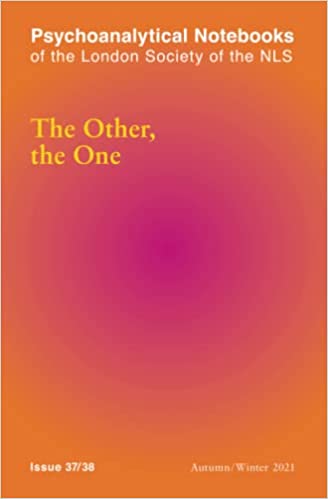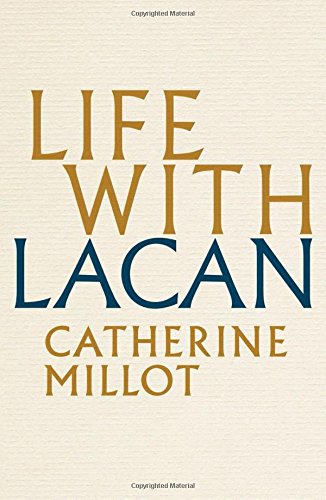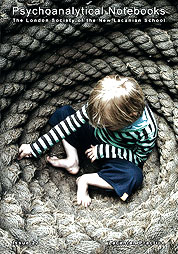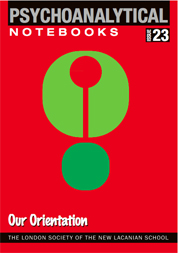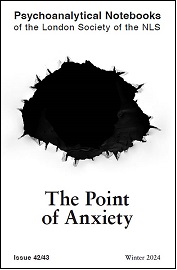Psychoanalytical Notebooks No. 40: Love Event

Book Details
- Publisher : London Society of the New Lacanian School (NLS)
- Published : June 2023
- Cover : Paperback
- Pages : 194
- Category :
Lacanian Psychoanalysis - Catalogue No : 97475
- ISBN 13 : 9781916157675
Also by Bogdan Wolf
Psychoanalytical Notebooks No.14: Responses from...
Price £15.00
Also by Catherine Millot
Life With Lacan
Price £16.99
There are currently no reviews
Be the first to review
The latest issue No 40 of the Psychoanalytical Notebooks is devoted to love and revolves around a term Jacques Lacan introduced in 1973 – “Love Event”. The issue includes, for the first time in our history, a fascinating contribution from Catherine Millot, a writer and passionate companion of Lacan in his teaching on love. She speaks of a presentation Lacan gave in Italy in 1974 which she attended but whose recording was lost. It is the time in the later teaching when Lacan no longer considers only narcissistic love - founded on the body image, complementing the ego - which followed his work on the mirror stage. He also went beyond the idea of love as a gift, having linked it to castration. His aphorism that to love is to give what one does not have, can be found between the imaginary dimension of love as linked to the specular image and the one he will orient around a “love event”.
To grasp it, Lacan’s early and late ideas of the imaginary need to be distinguished. Their difference follows from the inexistence of sexual relation. The new love that returns to Lacan calls first for a reworking and redefinition of the imaginary. Love as an event spurred Lacan to change the orientation of the imaginary from complementarity to non-reciprocity. The new love is never requited and never reciprocated and, he will add, remains irremediable. It is at this point that he will call it an event.
The new dimension of love is situated by Lacan in relation to the unconscious and to saying. By bringing love and saying into proximity, in Seminar XX in 1972-73, and a year later in Seminar XXI in particular, as some testimonies in this issue boldly demonstrate, he introduces a knot that gives the imaginary a new function. The new imaginary ties up a knot of love interlacing the unconscious and a real at stake in the failure of the sexual relation.
So love and saying form a knotting in the place of the inexistence of the sexual relation. This new love is an encounter and, by happenstance, Lacan says, par hasard. Not every saying has this character of an encounter and event. The reintroduction of love beyond the classical binary of subject-object thus becomes all the more intriguing. Who loves, who is loved? These questions no longer interest Lacan. He addressed them meticulously in his reading of Plato’s Symposium in Seminar VIII. In the 1970s, love is not the same as transference - the question for Lacan is how to love the real, how to relate to that Other that does not exist, that is therefore not reciprocal or complementary, by means of love. Lacan thus approaches love as a means by which the symbolic and the real are tied up. The imaginary changes its status when love becomes a third term, that of a means, but no longer of the specular image of the body.
Being in love, despite what Freud said about its hypnotic effects, still makes us want to know, so to know how love hypnotises! We give one definition of love, followed by another and love is written, contingently, it does not stop being written. Then we subtract one definition after another and ask: what remains at the end? Real love? The One of love? And here, again, Lacan surprises us, by saying at the end of Encore that “love has absolutely nothing to do with knowledge”. Love wants to be one. It aims at the sexual relation, and incorporates the latter’s failure in the movement between the impossible, what does not stop not being written, and a saying that does not stop being written as a contingent encounter. And when it happens and has a real effect, then it takes the place of the sexual non-relation, and therefore no longer is that which makes sense. When love no longer makes sense it is real. The desire to know morphs into a saying of the unconscious that does not know what the sexual relation is.
Here are some of the threads and rings with which we draw the orientation of this issue of the Notebooks.
Table of Contents
Editorial - Bogdan Wolf
LACAN AND LOVE
- Catherine Millot - Logic and Love
LOVE EVENT
- Philippe De Georges - "It is the Thunderbolt that Steers the Course of All Things"
- Fabian Fajnwaks - Love After Love: A Real Love?
- Philippe La Sagna - The Love Event
LOVE AND ITS CLINIC
- Eric Laurent - The Mad Love of a Mother
- Pierre Ebtinger - Possible Love
- Oscar Ventura - A Prodigal Woman
- Thierry Vigneron - The Surprises of Love
ON WHAT IS CALLED "NEGATIVE TRANSFERENCE"
- Vicente Palomera - Four Flashes on Negative Transference
- Colin Wright - Negative Transference as Fertile Crises in the School
- Marco Focchi - Negative Transference and Game Theory
- Bogdan Wolf - Do You Believe in the Real? Transference, Love, Obedience, and Indifference
LOVE IN LETTERS
- Daniel Roy - Youth Event: "New Love"
- Dalila Arpin - Hanna Arendt and Heidegger: the Trap
- Noëlle Fraticelli - Marguerite Duras: To Write, "Again" and Again
- Amal Wahbi - The Function of the Written
About the Author(s)
Bogdan Wolf received his PhD from Warwick University in the 1990s. He worked in the European School of Psychoanalysis before becoming editor of the Psychoanalytical Notebooks, a publication of the London Society in the Lacanian Orientation. He has authored several articles and book contributions in English, French, Spanish and Polish, co-edited the widely praised collection Later Lacan, and translated numerous texts. He has lived and worked in private practice in London for over twenty years.
Catherine Millot is a writer and psychoanalyst who teaches at the University of Paris-VIII.
Customer Reviews
Our customers have not yet reviewed this title. Be the first add your own review for this title.



